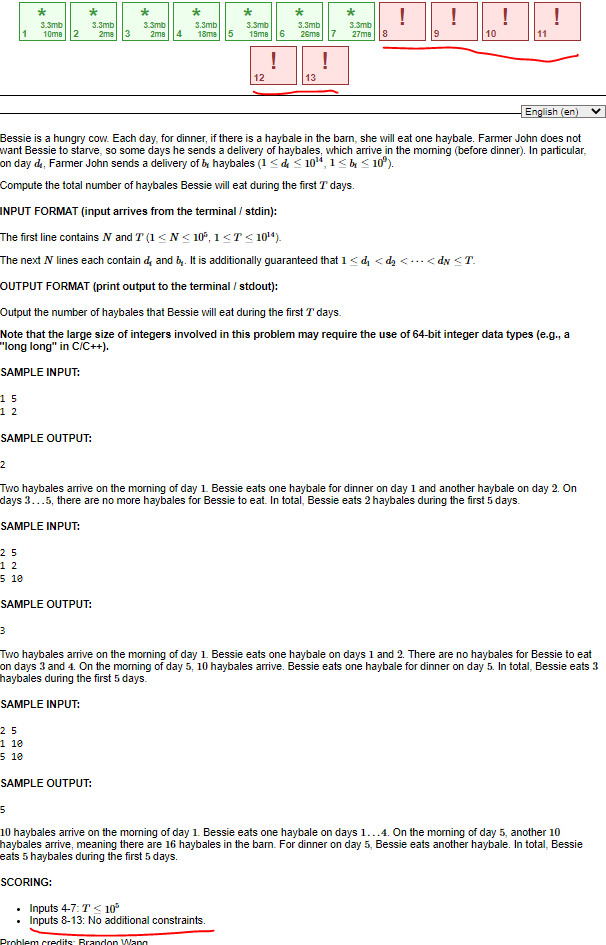Question
I wrote the following code for the problem but it failed for test cases 8-13 due to runtime error or memory limit exceeded. Can someone

I wrote the following code for the problem but it failed for test cases 8-13 due to runtime error or memory limit exceeded. Can someone optimize it such that it'd still work but be more efficient?
#include
int main() { ios::sync_with_stdio(false); cin.tie(nullptr); int N, T; cin >> N >> T; vector return 0; }
Step by Step Solution
There are 3 Steps involved in it
Step: 1

Get Instant Access to Expert-Tailored Solutions
See step-by-step solutions with expert insights and AI powered tools for academic success
Step: 2

Step: 3

Ace Your Homework with AI
Get the answers you need in no time with our AI-driven, step-by-step assistance
Get Started


